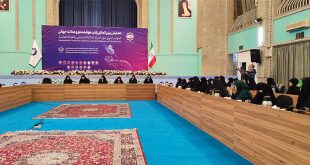Among the most important chapters of Islamic jurisprudence that has its root in the holy Qur’an and Islamic narrations are the ones on Khums and Zakat. The goal of this article is to review various aspects of these two religious financial obligations.
Economic issues have always been of the main concerns of human beings and have had an important role in their lives. Governments study various effective ways to secure people’s basic needs, and religious figures and institutions have always considered one of their main duties to assist the poor.
By the same token and due to its comprehensiveness, Islamic law has paid serious attention to the details of economic issues. Anfal, khums, zakat, transactions, partnership, lease, and hypothecation are among the financial affairs that have been discussed in Islamic jurisprudence. While those contracts and transactions that have the required conditions and are beneficial to the individual or the society are regarded as lawful, gaining money through harmful ways, such as usury, bribery, and gambling, is considered as forbidden and illegitimate.
Among the most important chapters of Islamic jurisprudence that has its root in the holy Qur’an and Islamic narrations are the ones on Khums and Zakat. The goal of this article is to review various aspects of these two religious financial obligations.
Bibliographic Information
Title: Zakat and Khums as Two Obligatory Alms in Islam
Author: Sayyid Muhammad Reza Mohaddes
Published in: Spiritual Quest, Summer andAutumn 201 5, Vol. 5, No. 2
Language: English
Length: 10 pages
 Ijtihad Network Being Wise and Faithful Muslim in the Contemporary World
Ijtihad Network Being Wise and Faithful Muslim in the Contemporary World
